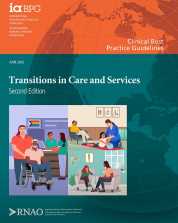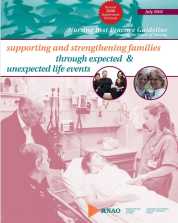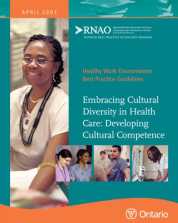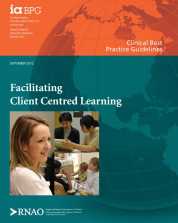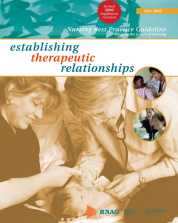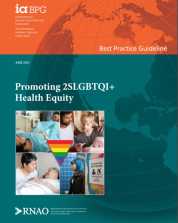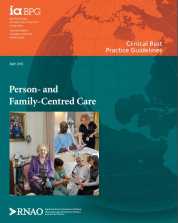The purpose of this best practice guideline (BPG) is to provide evidence-based recommendations for nurses and members of the interprofessional team, organizations and the health system. These recommendations support safe and effective transitions in care for pediatric and adult persons and their support network.
The purpose of this best practice guideline (BPG) is to assist nurses in promoting family health through interventions and supports provided during expected as well as unexpected life events. Expected life events may include birth, school, adolescence, aging, and death, while unexpected life events may include trauma/accidents, chronic illness, developmental delay and disability.
The purpose of this best practice guideline (BPG) is to promote a healthy work environment for nurses by identifying best practices for embracing diversity within health care organizations.
The aim of this best practice guideline (BPG) is to provide evidence-based recommendations for Registered Nurses, Registered Practical Nurses and other health-care providers to facilitate client-centred learning that promotes and enables clients to take action for their health.
The purpose of this best practice guideline (BPG) is to address the therapeutic relationship and its central importance to nursing practice. Effective nursing practice is dependent on an effective therapeutic relationship between the nurse and the client. The guideline addresses the qualities and capacities of an effective therapeutic relationship, the state of knowledge, and the knowledge needed to be effective in a therapeutic relationship.
The purpose of this best practice guideline (BPG) is to provide nurses and other members of the interprofessional team with evidence-based recommendations on foundational, inclusive care practices for 2SLGBTQI+ people.
The purpose of this best practice guideline (BPG) is to provide nurses and the circle of care with evidence-based recommendations on culturally safe and meaningful ways to support smoking reduction and cessation with Indigenous Peoples of reproductive age, their support networks and communities to improve health and wellness.
This guideline promotes evidence-based practices to help nurses and members of their interdisciplinary teams become more adept at practising person- and family-centred care. This evidence-based approach, combined with a perspective that recognizes the place of the person at the centre of health care, will improve individuals’ experience of and satisfaction with the care and services provided within the health system.
